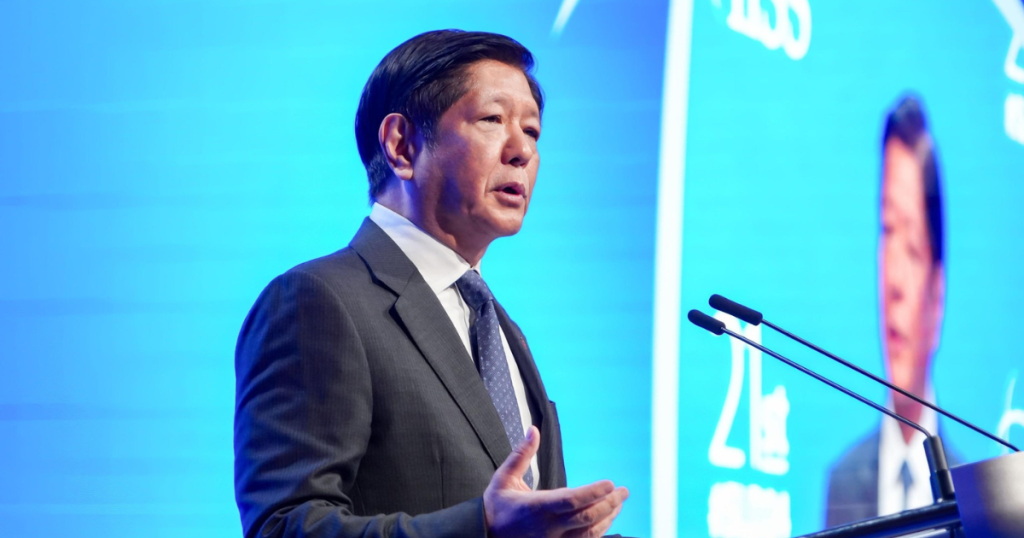The IISS Shangri-La Dialogue
Marcos slams China’s actions in
the West Philippine Sea
Philippine President Ferdinand Marcos Jr. at the 21st IISS Shangri-La Dialogue in Singapore. Photo from PCOO.
By Manuel Mogato | Date 06-7-2024
Singapore — Philippine President Ferdinand Marcos Jr has slammed China’s actions in the West Philippine Sea that violate the country’s sovereignty, sovereign rights, and jurisdiction.
Speaking at the International Institute for Strategic Studies (IISS)-organized annual Shangri-la Dialogue, Marcos Jr said these “illegal, coercive, aggressive, and deception actions” cause regional instability and uncertainty.
“Attempts to apply domestic laws and [regulations] beyond its territory and jurisdiction violate international law, exacerbate tensions, and undermine regional peace and security,” Marcos Jr said without directly naming China.
Recently, China has imposed a four-month fishing ban in the South China Sea, which covers areas within the Philippines’ 200 nautical mile exclusive economic zone.
China has also passed a new regulation authorizing its Coast Guard to arrest and detain “trespassers” in its territory in the South China Sea, which Marcos Jr had said to be unacceptable.
Marcos Jr is the first Filipino leader to address the regional security forum where defense and security leaders gather to discuss pressing global and security issues. (Also read: Philippines challenges China in a “Go” game in the West Philippine Sea)
Ukraine’s leader also addressed the Shangri-la Dialogue while the defense ministers of the world’s two powerful states, the United States and China, met at the forum’s sidelines.
During a brief meeting, Lloyd Austin highlighted the importance of freedom of navigation, but Dong Jun accused the US of increasing tensions in the region.
In his keynote address, Marcos Jr. defended the Philippines’ assertion on the West Philippine Sea as based on the 1982 United Nations Convention on the Law of the Sea (UNCLOS) and the 2016 arbitral award.
“The lines we draw on our waters are not derived from our imagination but from international law,” said Marcos Jr.
“We have on our side the 1982 UNCLOS and the binding 2016 Arbitral Award, which affirms what is ours by legal right.
In this solid footing and through our clear moral ascendancy, we find the strength to do whatever it takes to protect our sovereign home — to the last square inch, to the last square millimeter.”
He continued: “As President, I have sworn to this solemn commitment from the first day I took office. I do not intend to yield. Filipinos do not yield.”
Marcos Jr. also spoke of the seven realities and three constants in the Indo-Pacific, stressing the importance of ASEAN in the emerging global and regional security architectures.
After his speech, he answered questions from the audience, including the Chinese two-star general who doubted Marcos’ sincerity in pushing for ASEAN’s centrality role.
In the same forum, Marcos said the South China Sea is no longer a regional issue but a larger issue that other actors could get involved in, like the United States, because there are many stakeholders as half of the world’s trade passes through the strategic waters.
Marcos Jr also said the death of a Filipino citizen in the South China Sea by a Chinese water cannon could trigger the Mutual Defense Treaty with the United States, describing the hypothetical incident as “close to an act of war.”

